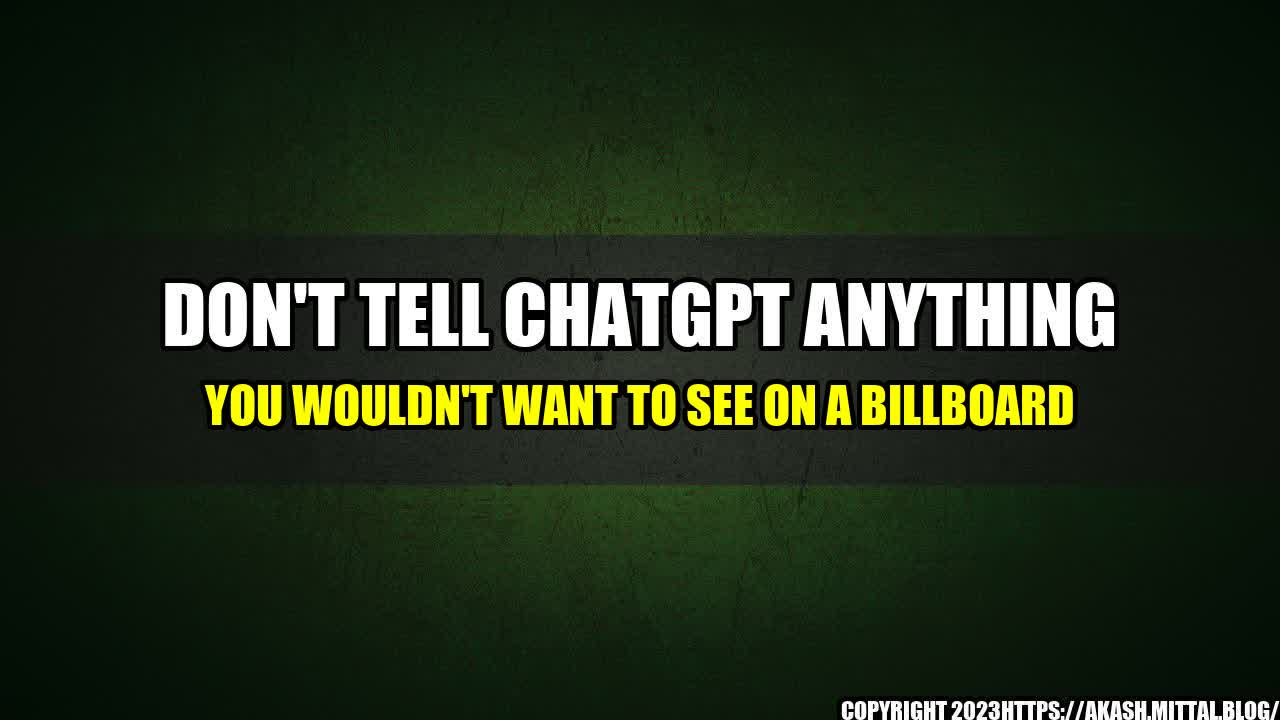When you're online, it can be tempting to share details about your life with friends, family, and even strangers. But before you hit "post," it's important to ask yourself whether the information you're sharing is something you'd want to see on a billboard for all to see. In this article, we'll explore why it's important to be cautious when sharing personal information online, and provide practical tips for protecting your privacy.
Imagine for a moment that you're walking down the street and you see a billboard with a photo of yourself and your full name. Underneath your photo, there's a list of your favorite foods, your relationship status, and your home address. How would you feel if this information was available for anyone passing by to see?
While this might seem like an extreme scenario, the reality is that many people share this type of information on social media platforms without thinking twice about who can see it. The truth is that once you post something online, it can be very difficult to take it back. Even if you delete a post, there's no guarantee that someone hasn't already taken a screenshot or saved the information.
That's why it's so important to think carefully before sharing personal information online. Whether it's a photo of your home, your location, or your relationship status, it's important to consider who might be able to see this information and what the consequences could be.
While quantifiable examples can be helpful in understanding the risks associated with sharing personal information online, personal anecdotes can provide a more relatable perspective. Here are a few stories from people who have learned the importance of protecting their privacy online:
"I used to share everything on social media - photos of my family, details about my job, and even my location. But after a friend of mine had her identity stolen, I realized that I needed to be more careful. Now I only share information that I'm comfortable with anyone seeing." - Sarah
"I thought I was being smart by using a fake name on dating apps, but when I started getting messages from people who knew my real identity, I realized that I needed to be more careful. It's scary to think about how easy it is for someone to find out your personal information online." - John
These stories illustrate that even seemingly harmless information can be used against you online. By sharing too much information, you could be putting yourself in danger without even realizing it.

Curated by Team Akash.Mittal.Blog
Share on Twitter Share on LinkedIn